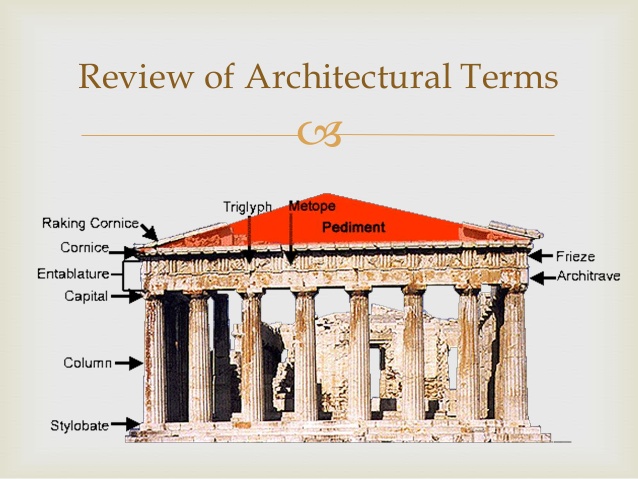
Greek Art
Roman Art History, Part 1 - Stokstad, 3rd ed
- 1. ROMAN art T, R, 12-1:20PM Professor Paige Prater
- 2. Place
- 3. Time Periods • 509-27BCE The Republic • 27BCE-96CE The Early Empire • 96-192CE High Imperial Art of Trajan & Hadrian • 192-395CE The Late Empire, Third & Fourth Centuries
- 4. Roman Origins • Romulus & Remus, twin sons of Mars, god of War • Aeneas, mortal son of Venus and survivor of the Trojan War • A people migrated to Neolithic Latium, south of Tiber, settling on the Palatine, one of the 7 hills that eventually became city of Rome • 6th century BCE –round huts>major transportation/trade center. • Latin-speaking
- 5. Roman Religion • Greek gods/myths: Roman names • Added deified emperors, later • Official state religion mixed with political duty (oath of allegiance to living rulers) • Other religious influences: Isis/Osiris from Egypt, Cybele from Anatolia, Mithras from Persia, God of Judaism/Christianity from Palestine
- 6. Roman Writings on Art • Vitruvius Ten Books on Architecture (1st Century CE) • Pliny the Elder (c. 23-79CE) Naturalis Historia • Pliny the Younger, nephew of Pliny the Elder (c. 61-113CE) LOTS of LETTERS (describing villas and gardens) • Flavius Josephus (c. 37-100CE) Jewish Wars (loot taken from the Temple of Solomon) • Ovid (c. 43BCE-17CE) Metamorphoses (themes for art) • Plutarch (c. 46-after 119CE) commentary on art/artists
- 7. The Republic 509-27 BCE • Early Roman Government: kings + Senate (citizen leaders) • 2 Classes, Poor and Rich: Plebians + Patricians • 509BCE- Etruscan king overthrown, OLIGARCHY established – GOVERNMENT by the artistocrats…lasted 450 years! • 275 BCE – entire Italian peninsula=Roman • 146BCE– Carthage and western Mediterranean = Roman • 150BCE - Macedonia and Greece = Roman • 44BCE – Gaul (France) and eastern Mediterranean =Roman • 31BCE – Egypt = Roman (Battle of Actium, Octavian defeats Marc Anthony and Cleopatra)
- 8. Aulus Metellus 80BCE • Bronze portrait, 5’ 11” • a.k.a. The Orator • Toga and laced leather boots • Memorial?
- 9. Pompey the Great, 50 BCE • Verism • Marble, 9 ¼” • General • One of a 3-man team (including Caesar and Crassus) who ruled from 60-53BCE
- 10. Denarius with Portrait of Julius Caesar, 44BCE • Relief portrait on denarius coin • Julius Caesar, living ruler • Venus on the reverse
- 11. Pont du Gard, Nîmes, France, late 1st century BCE • Round arch, vault, and CONCRETE • Aqueduct (water for city) • http://www.youtube.com/watch?v= zQqtiwIq9gw
- 12. Sanctuary of Fortuna Primigenia (model) 2nd century BCE • Discovered after WWII in bomb rubble, 16 mi southeast of Rome • Concrete with stucco and cut limestone veneer • 7 vaulted platforms/terraces • exedrae: semicircular niches • Colonnades • tholos
- 13. Temple (dedicated to Portunus) late 2nd century BCE
- 14. Maison Carrée 20BCE Nîmes, France
- 15. Augustus of Primaporta early 1st century CE • Julius Caesar = great-uncle • 19 years old; peace in 17 years • 27BCE – “Augustus” (exalted, sacred by Senate • “Pontifex Maximus” 12CE • Nearly 60 year rule! • Etruscan, Greek; Roman idealism; propaganda
- 16. Ara Pacis Augustae, 13-9BCE • Altar of Augustan Peace • Commemorative • Triumphal return after est. Roman rule in Gaul & Hispania
- 17. Ara Pacis Augustae Imperial Procession 5’2”, south side • New museum opened in 2006 • American architect, Richard Meier designed it in 1996
- 18. Ara Pacis Augustae – Allegory of Peace
- 19. Pompeii – Mt Vesuvius 79CE • Nature • Landscapes painted on interiors • Grid plan, but divided in quarters; forum and other public buildings were located at this intersection (Pompeii grew over time, not as grid-like.) • Insulae • 10-20,000 inhabitants in Pompeii • http://www.youtube.com/watch?v=dn14wkg0mhM • Houses behind/above shops Young Woman Writing, Detail of a wall- painting, Pompei, 37c m.
- 20. House of the Vetii, Pompeii (62-79CE)
- 21. Villa of the Mysteries • Marble “dado” (lower part of the wall) • Cult site…maybe Dionysos?
- 22. Garden scene, Villa of Livia at Primaporta, 1st Century BCE
https://www.slideshare.net/PaigePrater/greek-art-part-2-art-history-survey-stokstad-3rd-ed



